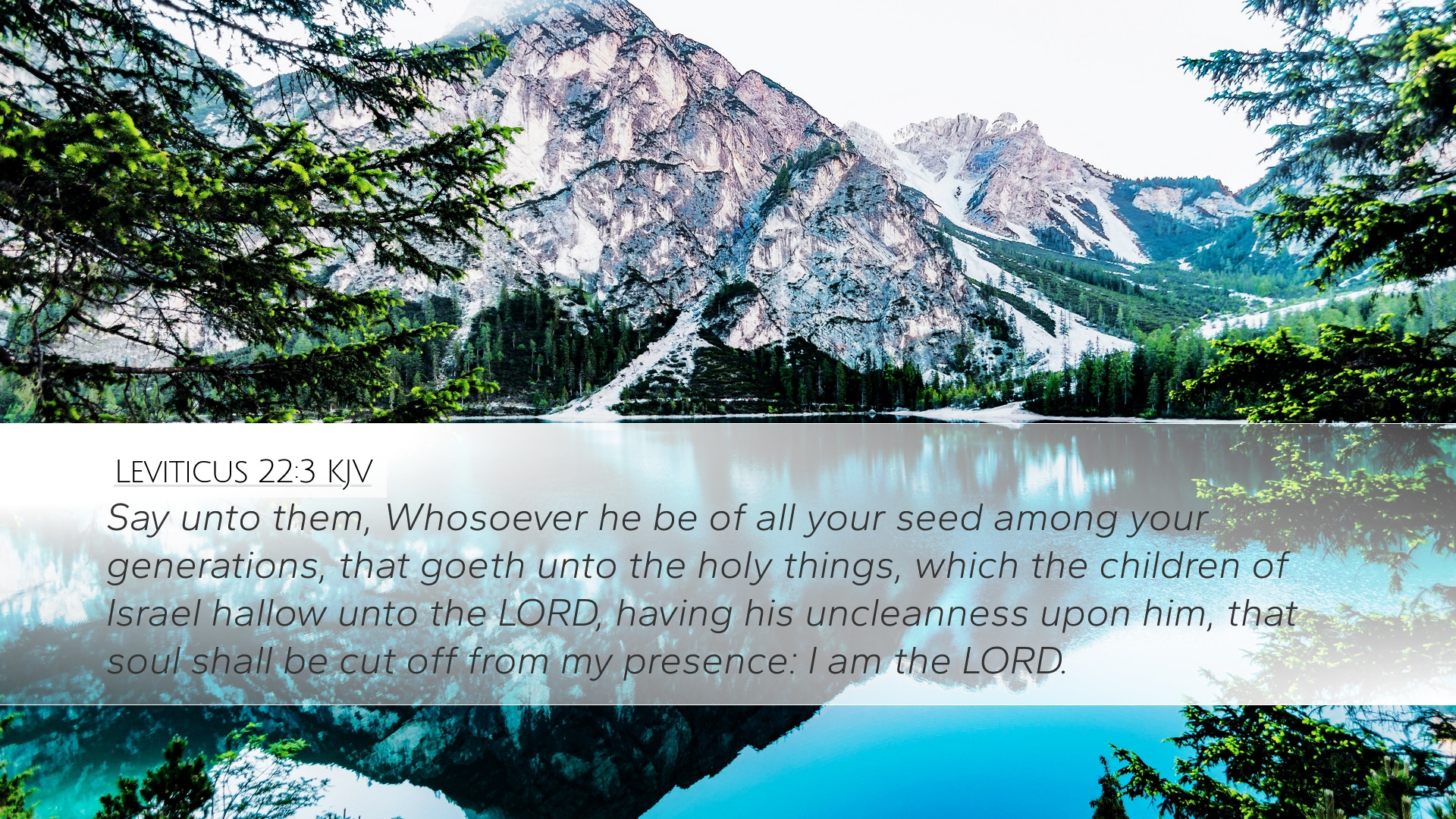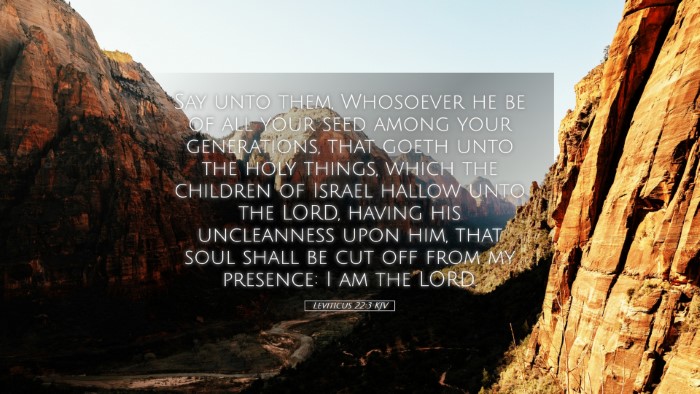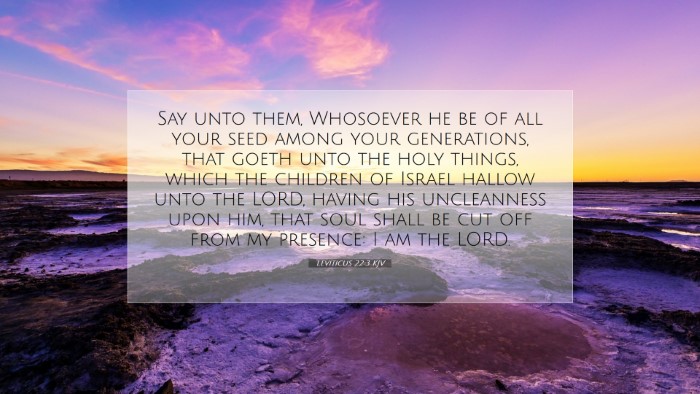Commentary on Leviticus 22:3
Bible Verse: "Say to them: If any of your descendants among the generations of Israel brings a sacrifice to the Lord, if he brings it of his own will, whether a burnt offering or a sacrifice of peace offerings, to pay his vow or as a freewill offering to the Lord, it must be unblemished to be accepted; there shall be no blemish in it." (Leviticus 22:3)
Introduction
This verse from Leviticus addresses the stipulations regarding sacrificial offerings, emphasizing the importance of the purity and condition of the offerings made to the Lord. A survey of public domain commentaries reveals profound insights into the theological implications and practical applications of this passage.
Interpretive Insights
-
Matthew Henry's Commentary:
Matthew Henry emphasizes the seriousness with which God regards sacrifices and offerings. He remarks that this instruction serves to remind Israel of the necessary purity and holiness required in worship. The idea is that the offerer must bring only the best of what they have, flow from a genuine heart, and reflect their standing with God.
-
Albert Barnes's Notes:
Albert Barnes highlights that the offerings prescribed must be without blemish. He connects this requirement with the nature of God, who is perfect and holy. The acceptance of the sacrifice hinges on its quality, which underscores the broader theological assertion that human beings should strive to present themselves and their works in a state of holiness and integrity.
-
Adam Clarke's Commentary:
Adam Clarke elaborates on the significance of voluntary offerings in this verse. He notes that while offerings could be made as part of a vow or commitment, the fundamental principle was the voluntary nature of the sacrifice. Clarke draws attention to the inward condition of the offerer, suggesting that true sacrifices must come from a willing and grateful heart that acknowledges God’s provisions.
Theological Significance
The theological insights derived from this verse articulate several key principles relevant to pastoral, scholarly, and personal contexts:
-
Holiness of Offerings:
Implicit in Leviticus 22:3 is the concept of holiness—both of the offerings and the offerer. Pastors are encouraged to help their congregations understand that worship involves presenting oneself in a state of purity, paralleling the condition of the offerings prescribed under the Law.
-
Intent of the Offerer:
The importance of the intentions behind the offerings cannot be overstated. This serves as a reminder to theologians and students of the significance of the heart in worship, as God's approval of our service hinges not solely on external forms but on genuine devotion.
-
Christological Foreshadowing:
Leviticus 22:3 foreshadows the ultimate sacrifice of Christ, who was without blemish and offered voluntarily for the atonement of humanity's sins. This connection offers a larger narrative context that enriches the understanding of sacrificial language throughout the Bible.
Practical Applications
Building on the theological insights, the practical applications for today’s church include:
-
Offering Quality Sacrifices:
Church leaders are called to guide their communities in offering their best—not just in financial contributions but in time, talents, and service. The principle that we should offer God our best continues to resonate with believers today.
-
Encouraging Voluntary Service:
Encouraging active participation in service to God and community from a place of willingness, rather than obligation, aligns with what the text suggests about the nature of offerings.
-
Educational Emphasis on Inner Purity:
Educators and pastors are encouraged to emphasize the need for personal integrity and moral cleanliness, stressing that our inner spiritual state affects our worship involved in church activities.
Conclusion
Leviticus 22:3 serves not only as a historical account of sacrificial laws but as a rich source of spiritual and moral instruction. Engaging with the text through the lenses of renowned biblical scholars such as Matthew Henry, Albert Barnes, and Adam Clarke opens up a multi-dimensional understanding that is crucial for pastors, students, and theologians alike. The call to purity, quality, and willingness in our offerings resonates profoundly, urging modern believers to align their hearts with the intent behind their worship and service.


